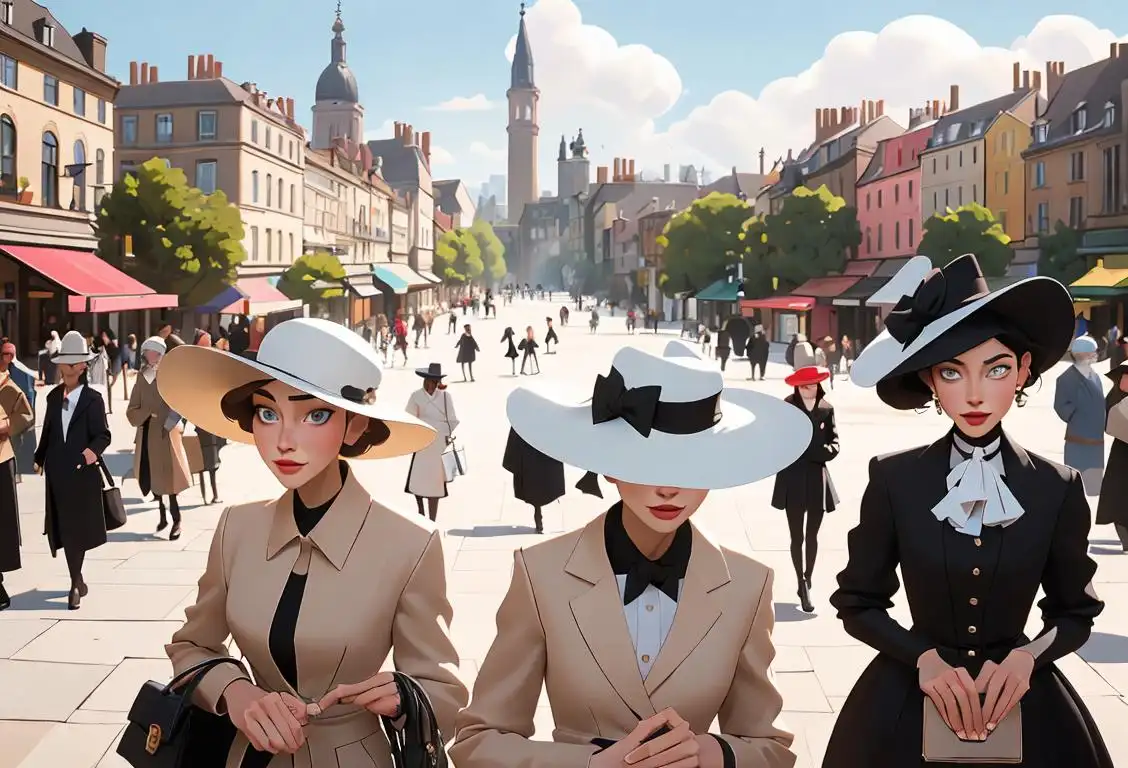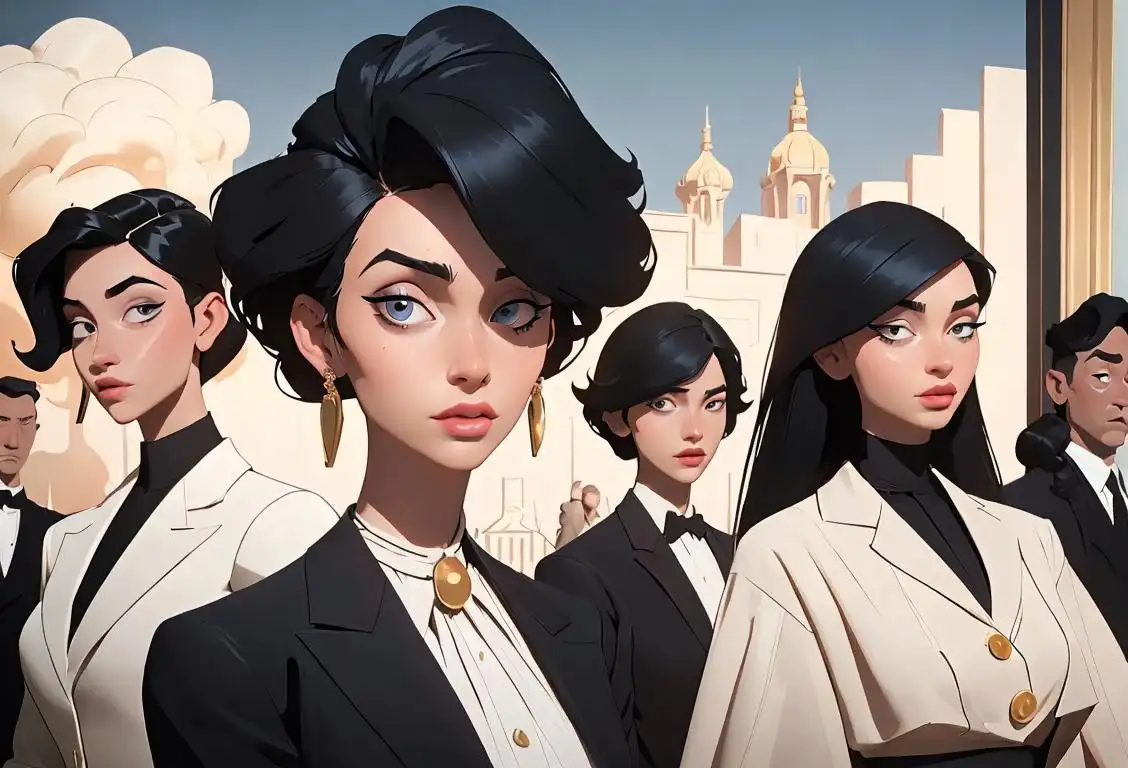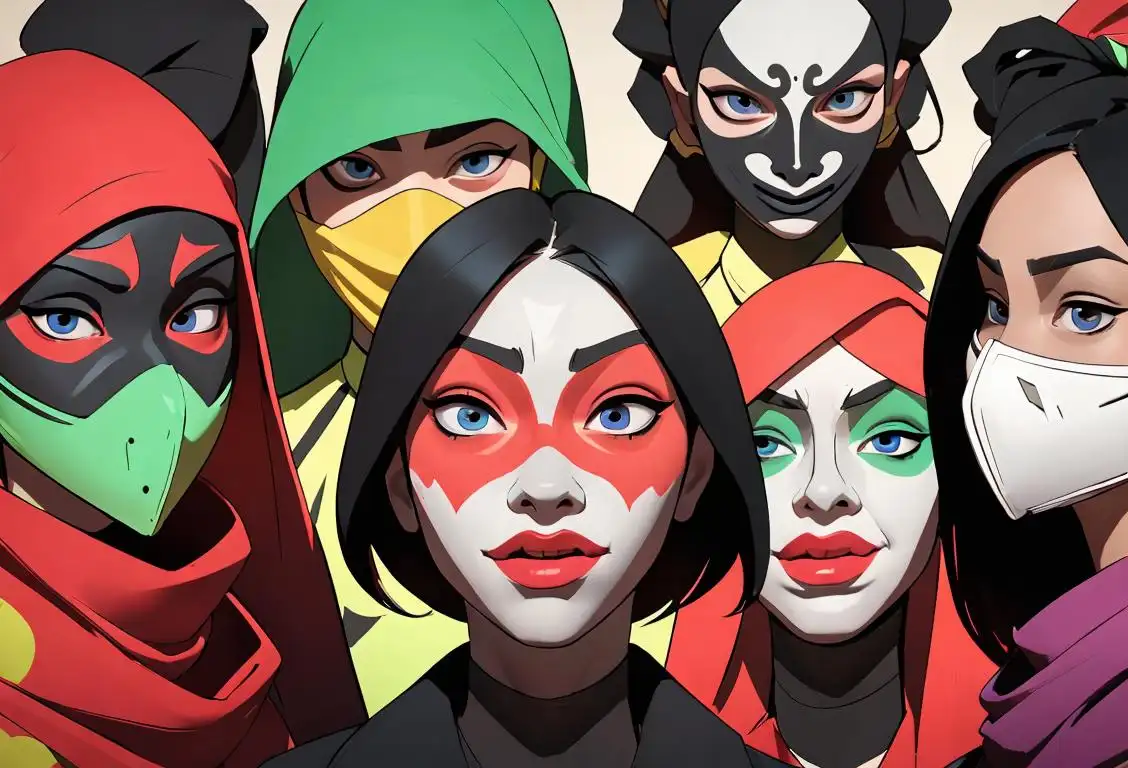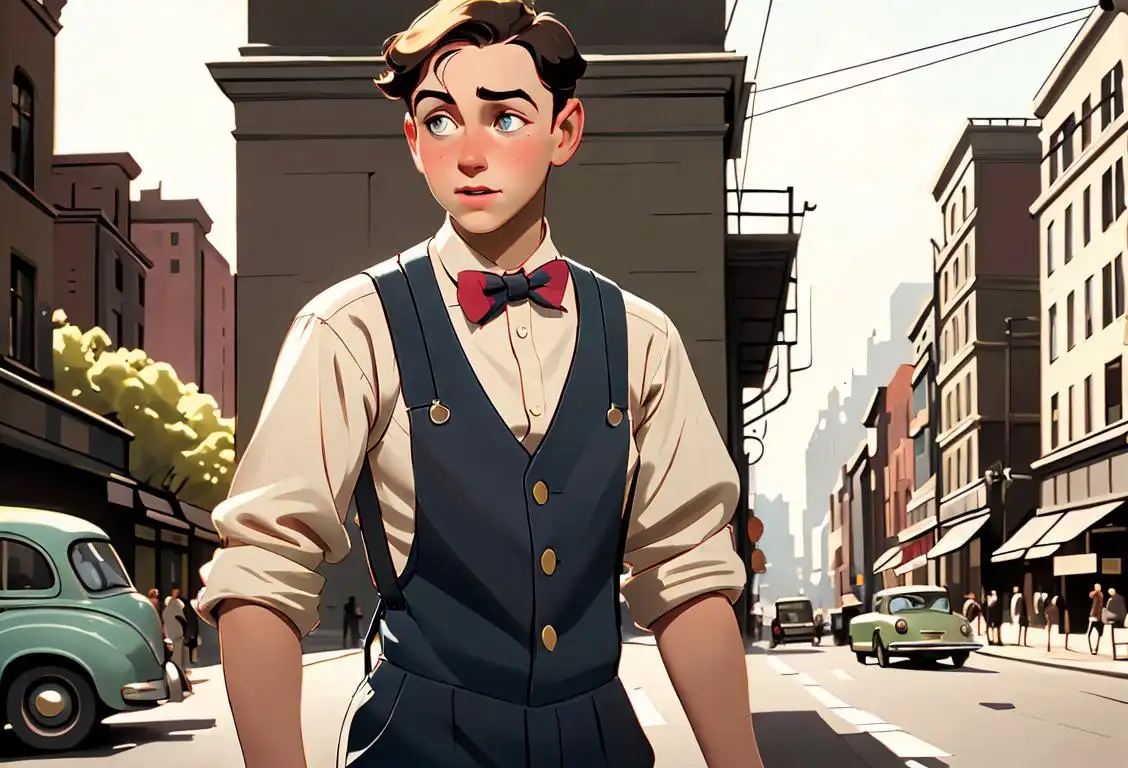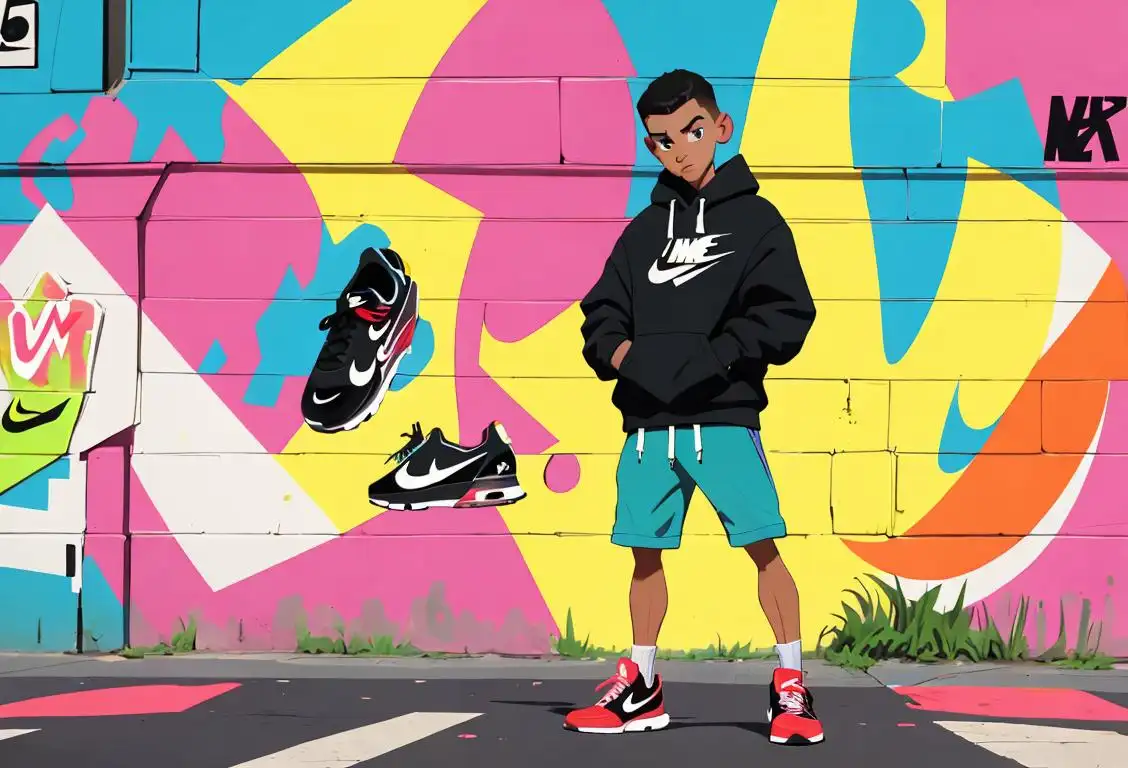National Scarf Day
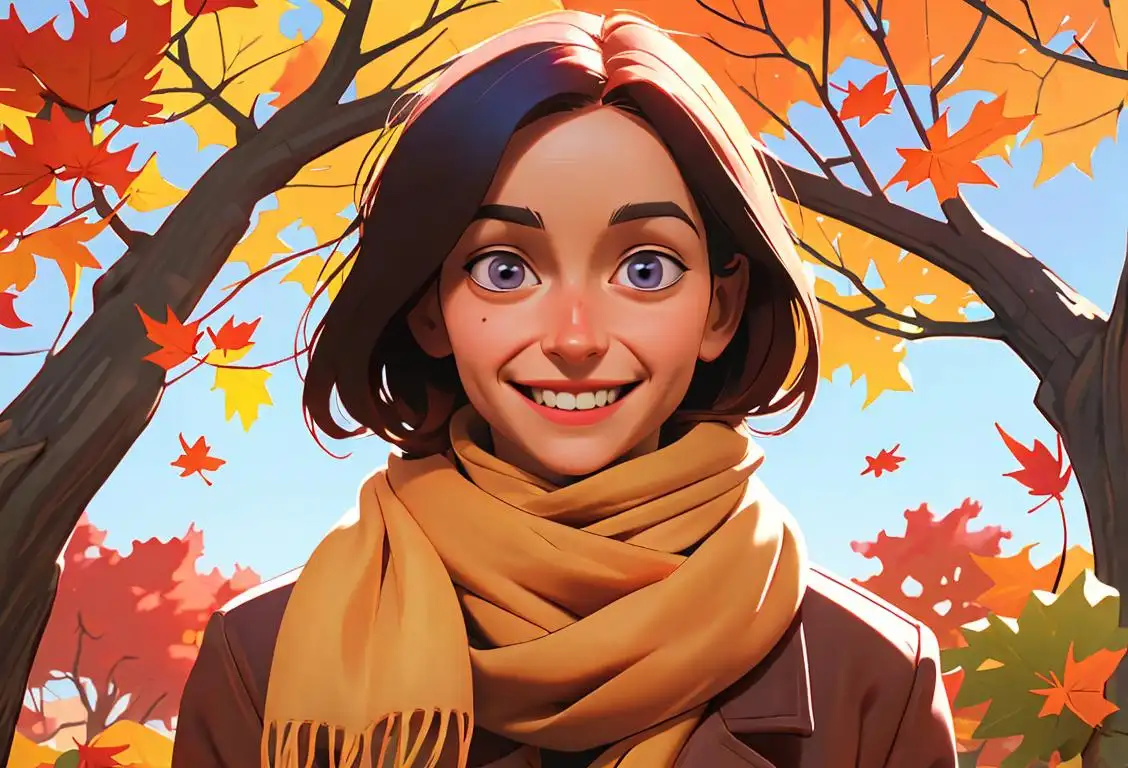
Ah, National Scarf Day, a day to celebrate the sartorial splendor of this fashionable accessory! Whether you're bundling up for the winter chill or adding a pop of color to your outfit, scarves are a versatile and stylish addition to any ensemble. Get ready to wrap yourself in the warmth of knowledge as we dive into the fascinating history of National Scarf Day!
When is Scarf Day?
It's national scarf day on the 27th September.
The Origins of National Scarf Day
Believe it or not, the origins of National Scarf Day can't be traced back to an ancient civilization known for their impeccable fashion sense. No, it's a relatively new addition to the ever-growing list of national days.
Back in 2015, when the internet was abuzz with national holidays, someone (perhaps a scarf enthusiast) came up with the brilliant idea of dedicating a day to honor scarves. It quickly gained traction and captured the hearts and necks of people everywhere. Now, every year on September 27th, scarf lovers around the world unite to celebrate the timeless fashion accessory we all know and love.
The Rise of Scarves
Scarves have been around for centuries, dating back to ancient Rome and China. They were primarily used for practical purposes like keeping warm or protecting one's neck from the elements. However, over time, scarves evolved from purely functional items to fashionable accessories.
In the 19th century, scarves became a symbol of elegance and sophistication, particularly among the upper class. They were often made from luxurious fabrics like silk and adorned with intricate patterns or embroidery. Scarf-wearing became synonymous with high society, and anyone who wanted to be considered fashionable wouldn't be caught without one.
Celebrating National Scarf Day
So, how can you join in on the festivities of National Scarf Day? Well, it's quite simple, really. Just find your favorite scarf (or scarves!) from your collection and flaunt them with pride. Wrap them around your neck, tie them in creative knots, or drape them over your shoulders like a fashionista. The possibilities are endless!
Don't have a scarf? Don't fret! National Scarf Day is the perfect excuse to treat yourself to a new one. Explore different styles, colors, and patterns to find the perfect scarf that reflects your personal style. Whether you prefer bold and vibrant designs or subtle and classic ones, there's a scarf out there for everyone.
Did You Know?
Did you know that the world's longest scarf measures a whopping 2,651.8 meters (8,700 feet)? It was created by the students and staff of a high school in Kuwait in 2013. Talk about a scarf that could keep you cozy for miles!
History behind the term 'Scarf'
7th century
Starting with the shawl
The ancient origins of the scarf can be traced back to the 7th century when it was known as a shawl. Shawls were large pieces of fabric that were draped over the shoulders or wrapped around the body for warmth and protection from the elements. They were primarily worn by men and women in Central Asia, particularly in regions such as Kashmir and Iran. These early shawls were made from various materials including silk, wool, and cashmere.
17th century
The cravat emerges
In the 17th century, a new style of scarf emerged known as the cravat. The cravat was a neck cloth that was worn by men as a fashion accessory. It was usually made from linen or lace and was intricately folded and tied around the neck. The cravat was a popular fashion statement among the elite and upper-class men in Europe, particularly in France and England. It became a symbol of wealth and status.
19th century
Enter the muffler
During the 19th century, the term 'scarf' started to be used to describe a narrower and longer version of the shawl. This new type of scarf, known as a muffler, was primarily worn by men for warmth. Mufflers were usually made from wool or cashmere and were wrapped around the neck several times for added insulation. They were particularly popular in colder climates, such as those in Northern Europe and North America.
20th century
Scarves as fashion accessories
In the 20th century, scarves began to be recognized as versatile fashion accessories that could be worn by both men and women. Designers started experimenting with different fabrics, patterns, and styles, making scarves a popular choice for adding a touch of elegance or color to outfits. Scarves became a staple accessory in the fashion industry and were worn not only for practical purposes but also as a statement of style and individuality.
21st century
The scarf's cultural significance
In the 21st century, scarves have gained immense cultural significance around the world. They are worn by people of different cultures and backgrounds as a means of expressing their identity, beliefs, or heritage. Scarves are often used as symbols of pride, solidarity, or support for various causes or movements. They have become a fashion statement and a way for individuals to showcase their personal style while also carrying historical and cultural connotations.
Did you know?
Did you know that the world's longest scarf measures a whopping 2,651.8 meters (8,700 feet)? It was created by the students and staff of a high school in Kuwait in 2013. Talk about a scarf that could keep you cozy for miles!Tagged
celebration fashionFirst identified
27th September 2018Most mentioned on
27th September 2019Total mentions
363Other days
Wear A Hat Day
Big Wig Day
Eyewear Day
Mask Day
Suspenders Day
Outfits Day
Handbag Day
Air Max Day
Scarf Day
Blue Jeans Day
